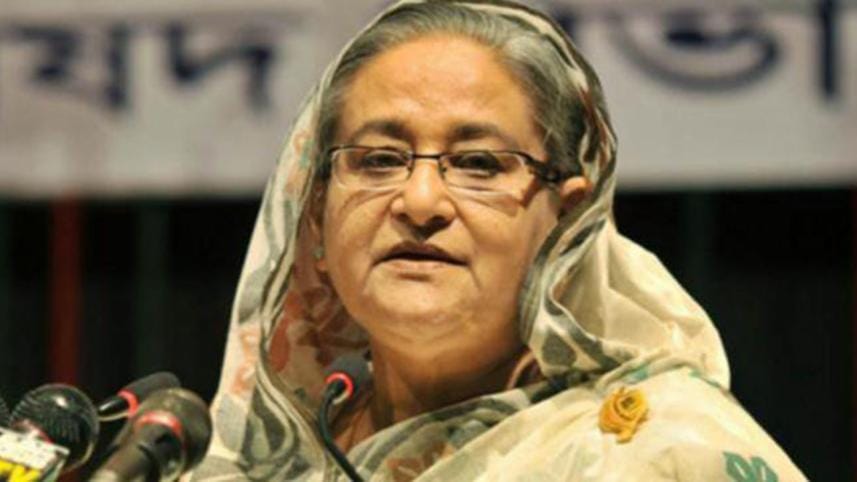PM’s Visit to Japan: $1.2b loan deal likely for four dev projects

Bangladesh will sign a deal of over $1.2 billion with Japan for four projects, including the second metro rail connecting the capital’s airport and Kamalapur, during Prime Minister Sheikh Hasina’s visit to the East Asian country on May 28-31.
At that time, Dhaka would also seek technical and financial assistance of nearly $10 billion for 10 future projects on water, land, irrigation, and char development, finance ministry officials told The Daily Star.
This will be Hasina’s first visit to Japan, the single biggest bilateral development partner of Bangladesh, since she became prime minister for the third straight term in January. The PM had earlier gone there in 2010 and 2014.
Bangladesh, the second largest recipient of Japan’s official development assistance (ODA), and Japan expect the visit to further consolidate the bilateral relations of the two friendly countries.
Since Bangladesh’s independence in 1971, Japan has provided financial support of more than $18.6 billion to Bangladesh in forms of grants, loans and technical assistance, according to finance ministry data.
During a meeting with the premier at the Gono Bhaban on May 20, Japanese Ambassador to Bangladesh Hiroyasu Izumi said Prime Minister Shinzo Abe was eagerly waiting to receive her in Japan.
“When we turn to the relation between Japan and Bangladesh, these coming three years will be of significant importance,” Izumi also said in his speech on May 16 at Japanese embassy that arranged a reception marking Emperor Naruhito’s accession to the Imperial Throne.
The year 2021 is the 50th anniversary of the independence of Bangladesh, and 2022 will mark the 50th anniversary of the establishment of diplomatic relationship between Japan and Bangladesh, he said.
To mark these anniversaries, a number of big development projects are underway, including construction of three bridges on the Shitalakhya, Meghna and Gumti rivers, Jamuna Railway Bridge, Dhaka international airport 3rd terminal, Dhaka Metro Lines and Matarbari Port and Power Plant, Izumi said.
Last year, the amount of ODA to Bangladesh was about $1.8 billion, the largest ever loan support to Bangladesh for a year.
“This fact is attracting Japanese companies to Bangladesh increasingly, and now 279 Japanese companies are working in Bangladesh,” Izumi said, adding, “I am expecting that this number will rapidly increase in the coming years. I always have this in mind that we are creating Bangladesh’s bright future together with all of you.”
A finance ministry official said the four projects under the 40th ODA agreement of over $1.2 billion to be signed include Dhaka Mass Rapid Transit (MRT) Development Project (Line-1), Matarbari Port Development Project (I) in Maheshkhali of Cox’s Bazar, Foreign Direct Investment Promotion Project (II), and Energy Efficiency and Conservation Promotion Financing Project (phase-2).
The agreement of loan for Matarbari Ultra Super Critical Coal-Fired Power Project (V), which was supposed to be signed during the PM’s forthcoming visit, is not being inked because the project is not ready yet, said the official, requesting anonymity.
MRT Line-1, the country’s first underground railway, will connect the capital’s airport and Kamalapur. Its construction is scheduled to begin in July this year. It is estimated to carry 14 lakh people a day.
MRT Line-1 is second among the five MRT lines to be built under state-owned Dhaka Mass Transit Company Ltd.
Japan is also funding Bangladesh’s first elevated metro rail, MRT Line-6, from Uttara to Motijheel. It’s now under construction.
The loan under the Foreign Direct Investment Promotion Project means to develop infrastructure at the economic zone of Mirersharai of Chattogram. Japanese companies will be able to establish industries there, officials said.
Other than that, some Japanese companies may also sign agreements with Bangladesh’s Public-Private Partnership Authority for investments in some of the projects in Bangladesh, finance ministry officials said.
During the meeting with Japanese premier Shinzo Abe, Hasina would seek financing of at least 10 other future projects requiring over $10 billion.
The projects include revitalisation of small rivers, canals and wetlands all over the country; Jamuna-Padma stabilisation and land reclamation project; land reclamation of Hatiya-Dhamar Char-Nijhum Dwip; development of Bhola-Kukri Mukri and Char Montaz; and irrigation projects in Kurigram and Rajshahi.
The projects also include water resources management in Halda-Karnaphuli and Sangu-Matamuhuri river basins.
A finance ministry official said Japan is also interested in financing urban development and city governance projects in Rangpur, Gazipur, Narayanganj, Cumilla, Mymensingh and in two municipalities in Faridpur and Cox’s Bazar.


 For all latest news, follow The Daily Star's Google News channel.
For all latest news, follow The Daily Star's Google News channel.
Comments